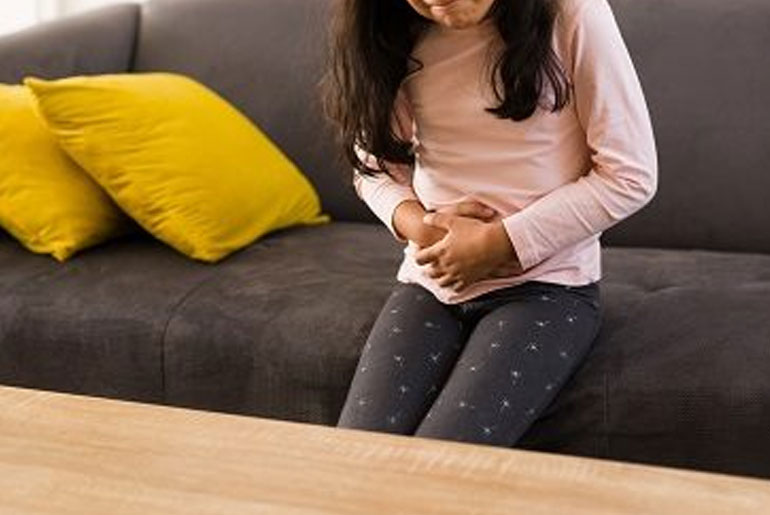Childhood diarrhoeal diseases remain a significant public health concern in India, especially among children under five years old. The statistics highlight the severe impact, with diarrhoea contributing to a notable percentage of under-five deaths annually. The clustering of these deaths in summer and monsoon months underscores the environmental factors influencing disease spread, often affecting children from socio-economically disadvantaged backgrounds disproportionately. Prevention and treatment efforts, including access to clean water, sanitation, and timely medical care, are crucial in addressing and reducing these tragic outcomes.
Understanding and Addressing Diarrhoea in Children:
Diarrhoea is indeed characterized by the frequent passage of loose or liquid stools, typically defined as three or more times a day. It’s crucial to distinguish this from normal variations in stool consistency, such as breastfed babies passing loose stools.
The causes of diarrhoea are diverse and often related to infections from bacteria, viruses, and parasites, many of which are transmitted through contaminated water or food. Inadequate sanitation, poor hygiene practices, and unsafe drinking water significantly increase the risk of infection. Among children, rotavirus and E. coli are prevalent pathogens associated with diarrhoeal diseases.
Malnutrition also plays a critical role, weakening children’s immune systems and making them more susceptible to diarrhoea and its complications. Improper food storage and handling practices further contribute to the spread of diarrhoeal illnesses, highlighting the importance of hygiene in both domestic and community settings to prevent disease transmission.
Importance of Hydration and Prevention Strategies:
During episodes of diarrhea, the body loses water and essential electrolytes such as sodium, chloride, potassium, and bicarbonate through liquid stools, vomiting, sweating, urine, and even breathing. This significant loss can lead to dehydration if not managed promptly. Preventing diarrhea is crucial not only for reducing dehydration risk but also for maintaining overall health and well-being. Proper hygiene practices, safe drinking water, and a balanced diet can play key roles in preventing diarrhea and its associated complications.
Preventive Measures:
- Access to Safe Drinking Water: Ensure water is boiled, filtered, or treated with chlorine, especially during monsoons when waterborne diseases are more prevalent.
- Use of Clean Toilets: Proper sanitation facilities help prevent the contamination of water sources and reduce the spread of diarrhoeal pathogens.
- Hand Washing: Regularly wash hands with soap and water, especially before eating, after using the toilet, and handling food. This helps prevent the spread of germs.
- Exclusive Breastfeeding: Breastfeeding exclusively for the first 6 months of a baby’s life provides essential nutrients and antibodies that help protect against diarrhoea and other infections.
- Good Personal and Food Hygiene: Maintain clean cooking and eating utensils, store food properly, and avoid consuming food from unhygienic sources.
- Rotavirus Vaccination: Ensure infants receive all three doses of the rotavirus vaccine as part of routine immunization schedules. This vaccine significantly reduces the risk of severe diarrhoea caused by rotavirus infection.
Treatment Measures:
- Stay Hydrated: Drink Oral Rehydration Solution (ORS) or other fluids to replace lost fluids and electrolytes. This helps prevent dehydration, especially important in children.
- Zinc Supplements: Zinc supplementation can help reduce the duration and severity of diarrhoeal episodes and promote faster recovery.
- Eat Nutrient-Rich Foods: Consume easily digestible, nutrient-rich foods such as bananas, rice, applesauce, and toast (BRAT diet) to provide energy and aid recovery.
- Rest and Avoid Strenuous Activities: Rest allows the body to recover and conserve energy. Avoiding strenuous activities helps prevent further dehydration.
- Avoid Over-the-Counter Drugs: Consult a doctor before taking any medication, especially antibiotics, as they may not be suitable for all types of diarrhoea. Follow medical advice if symptoms worsen or persist.
Absolutely, preventing and managing diarrhea requires a multifaceted approach that encompasses both preventive measures and effective management strategies. Promoting good hygiene practices such as handwashing with soap, ensuring access to safe drinking water, improving sanitation facilities, and practicing proper food safety measures during handling and preparation are crucial steps in reducing the incidence of diarrhea, particularly among children. These efforts not only help prevent diarrheal illnesses but also contribute to overall public health improvements by minimizing the spread of waterborne and foodborne pathogens.
Disclaimer:
The information contained in this article is for educational and informational purposes only and is not intended as a health advice. We would ask you to consult a qualified professional or medical expert to gain additional knowledge before you choose to consume any product or perform any exercise.







